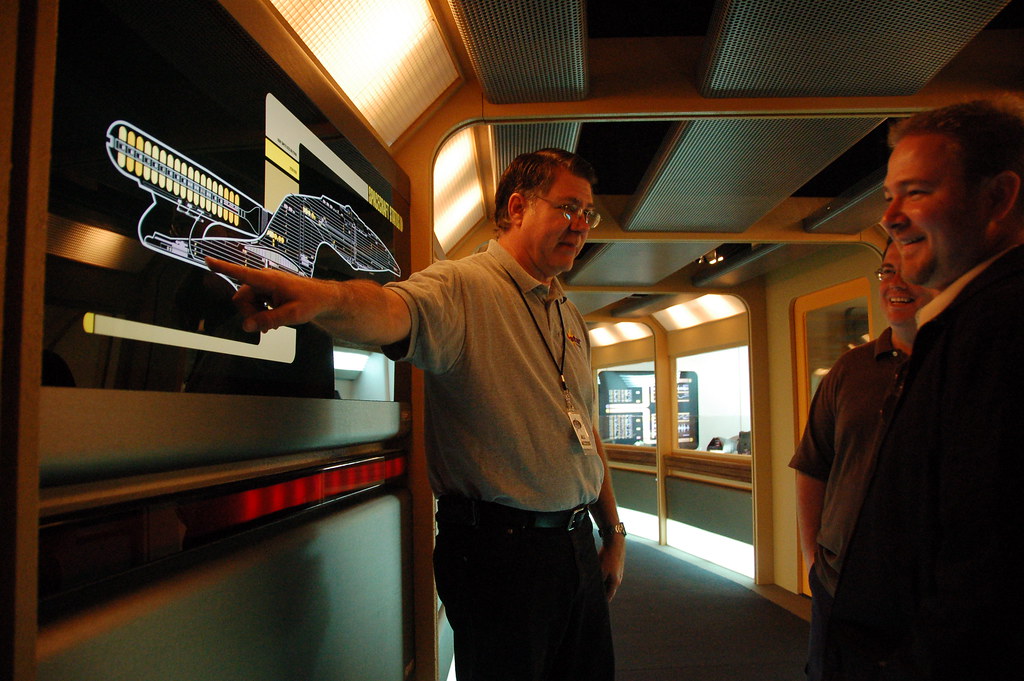 This research guide will help you locate popular and scholarly sources of information about the Star Trek television series of the 1980s and 1990s -- Star Trek: The Next Generation, Star Trek: Deep Space Nine, and Star Trek: Voyager -- that may be useful as you develop an argumentative essay on a topic of your choosing.
This research guide will help you locate popular and scholarly sources of information about the Star Trek television series of the 1980s and 1990s -- Star Trek: The Next Generation, Star Trek: Deep Space Nine, and Star Trek: Voyager -- that may be useful as you develop an argumentative essay on a topic of your choosing.
Some of the links provided below direct you to websites and materials available freely on the open Web; others connect you with databases and other resources that you can only access with MU credentials (i.e., your MU username and password).
Tips for using the resources linked below:
Photo credit: "Star Trek, the Tour," by Sue and Danny Yee. Photo available through Creative Commons License Attribution-NonCommercial-NoDerivs 2.0 Generic (CC BY-NC-ND 2.0).
The Discover@MU tool helps you find physical and electronic books and articles from scholarly journals, popular magazines, and newspapers, all with one easy-to-use search box. Enter your search terms in the field below, then use the filters on the left-hand side of your results page to narrow your findings by publication date, source type, subject, and more.
The online encyclopedias and reference websites listed below can be great sources of background information and quick facts -- cast and crew information for a series, or a brief description of the critical reception for an episode, for example. In most cases, you should use these resources to inform your understanding and as a guide to primary and secondary sources, but not as actual sources of information that you will quote and cite in your essays for class.
Scholars in a variety of disciplines have analyzed, evaluated, and explored the themes and issues presented in Star Trek's television series, movies, and literature. Much of that scholarly criticism is published in academic journals; many of those articles can be found in the databases linked below.
Magazines are typically published less frequently than newspapers (monthly, rather than daily, in many cases) but are also more likely to publish lengthier articles on a given topic.
You will find old issues of many popular American magazines organized under the call number AP2. These magazines are located in the northeast corner of Ellis Library's fourth floor, near the Nook quiet study space. Magazines with the AP2 call number are organized alphabetically by title; this makes our collection easy to browse!
If you're interested in finding issues of a specific magazine (e.g., Time, Newsweek, Vanity Fair, Vogue, etc.), you can use the "Journal Title" field in the library's Find It tool. This search will let you know whether we have access to a magazine, and if so, whether its old issues are available electronically, in print, or on microform.
Use the links below to access the full text from three magazines that frequently published news and interviews related to the Star Trek franchise.
Along with contemporary coverage of international, national, regional, and local events and issues, many newspapers published news, reviews, and interviews related to Star Trek television shows and movies.
Many of the themes addressed in Star Trek's various television series were inspired by real political events and cultural conversations occurring in society at the time. The resources below can provide some context for how people felt about the major issues of their times.